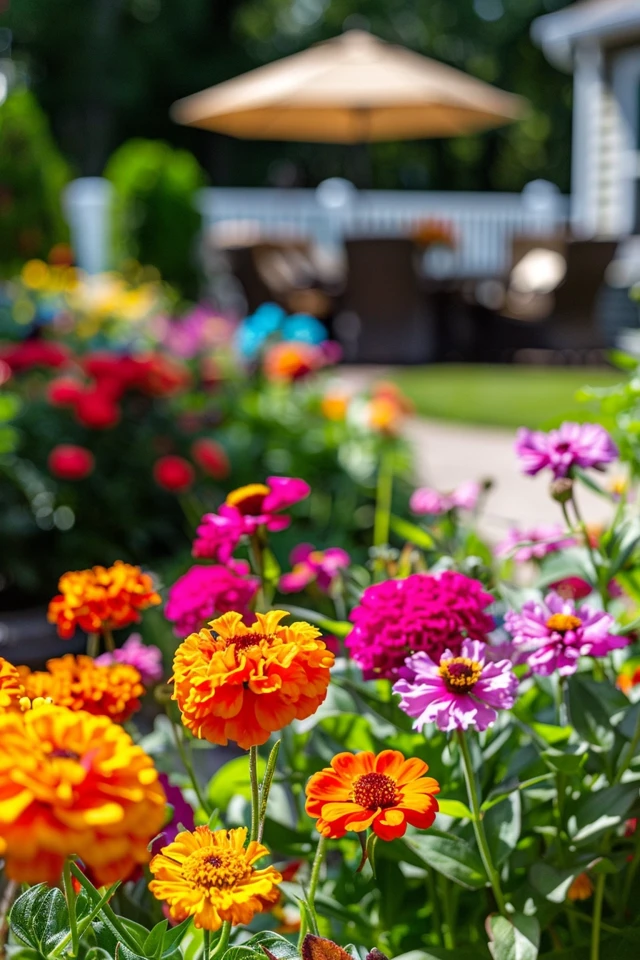Gardening can be a rewarding hobby, allowing you to create a beautiful and vibrant outdoor space. However, it’s not without its challenges. One common problem gardeners face is dealing with invasive plants like Devil’s Walking Stick. This hardy perennial can quickly take over your garden if left unchecked. In this article, I will share some effective strategies for getting rid of Devil’s Walking Stick and managing your garden effectively.
Key Takeaways:
- Proper watering is essential for Devil’s Walking Stick, adjusting it based on the climate and season.
- Controlling Devil’s Walking Stick requires proactive measures such as herbicide applications and seedling removal.
- Maintaining a diverse ecosystem and good soil health can deter the growth of Devil’s Walking Stick.
- Regular pest inspections and introducing beneficial insects can help other aspects of your garden maintenance.
- Pruning, mulching, and organic practices are fundamental for overall garden care.

Controlling Devil’s Walking Stick: Organic Garden Maintenance
The Devil’s walking stick is a highly invasive plant that can quickly spread and disrupt the natural balance of your garden. To ensure the health and beauty of your garden, it is important to take proactive measures in controlling this plant.
Herbicide Application
One effective method for controlling Devil’s walking stick is the use of herbicides. Garlon 4 ultra, when applied directly to the basal bark of mature specimens, can effectively kill the plant. It is important to follow the instructions provided by the manufacturer and take necessary precautions to protect yourself and other plants in the vicinity.
Hand Pulling and Seedling Removal
In addition to herbicides, hand pulling the plant and removing any seedlings can help prevent further spread. Make sure to wear gloves and protective clothing while handling the plant, as its spines can cause skin irritation.

Maintaining a Diverse Ecosystem
Creating a diverse ecosystem in your garden can also deter the growth of Devil’s walking stick. Planting native species that are well-adapted to your region can help outcompete the invasive plant. Additionally, maintaining good soil health through organic practices, such as composting and avoiding chemical fertilizers, can promote strong and healthy plant growth, making it more difficult for Devil’s walking stick to establish itself.
“By taking proactive measures and maintaining a diverse ecosystem, we can effectively control the spread of Devil’s walking stick and protect the natural environment in our gardens.”
Remember, organic garden maintenance plays a key role in keeping invasive plants like Devil’s walking stick at bay. By utilizing herbicides, hand pulling, and seedling removal, as well as maintaining a diverse ecosystem, you can ensure the well-being of your garden and keep it free from invasive pests.

Tips for Garden Care and Maintenance
When it comes to maintaining a beautiful and healthy garden, there are a few essential tips that can make all the difference. One of the most important aspects of garden care is regularly inspecting plants for pests and diseases. By identifying any issues early on, you can prevent infestations and ensure the overall health of your plants.
In order to control garden pests naturally, consider introducing beneficial insects into your garden. Ladybugs and praying mantises, for example, can help keep unwanted pests at bay. These natural predators can effectively manage common garden pests without the need for chemical pesticides.
Promoting strong and healthy plant growth starts with maintaining good soil health. Organic practices such as composting and avoiding chemical fertilizers can provide essential nutrients to your plants while preserving the overall health of your garden. Additionally, regular pruning and mulching can help keep your garden tidy and reduce weed growth, resulting in a more manageable and aesthetically pleasing outdoor space.
So, remember:
- Inspect your plants regularly for pests and diseases.
- Introduce beneficial insects to naturally control pest populations.
- Maintain good soil health through organic practices.
- Regularly prune and mulch to keep your garden tidy and minimize weed growth.
By following these garden care tips, getting rid of plant pests, and practicing organic garden maintenance, you can create a thriving and beautiful garden that you’ll be proud of.

